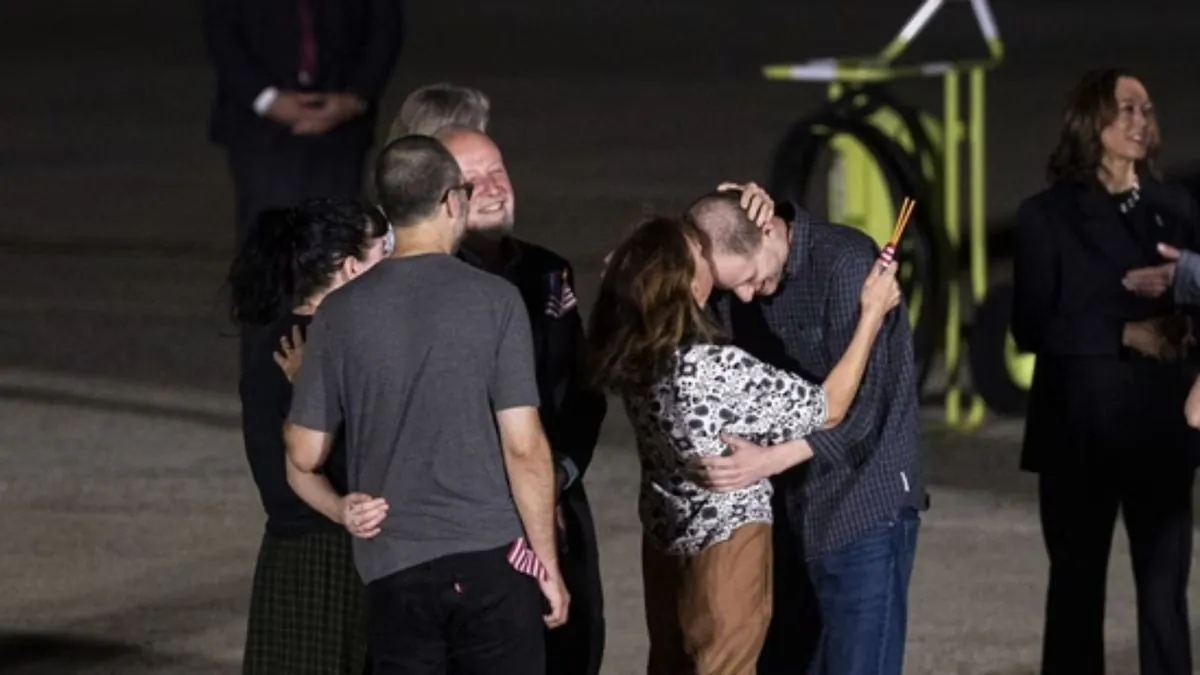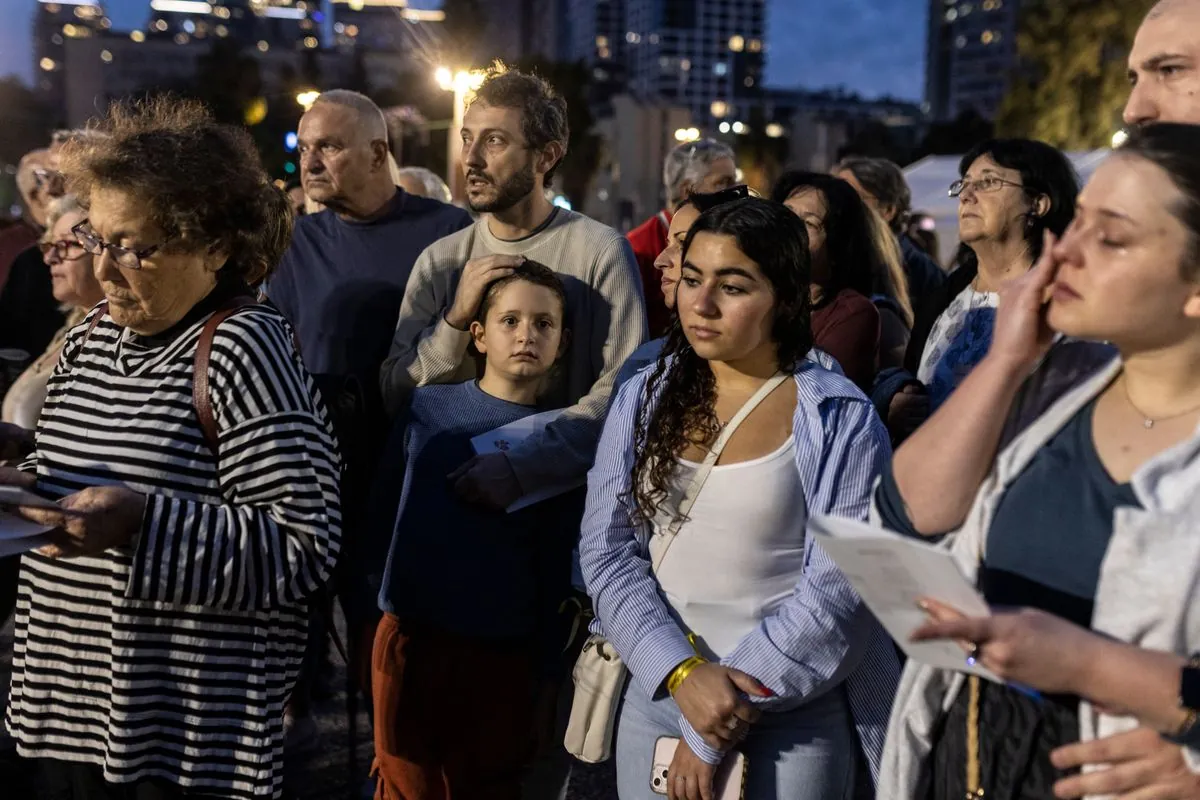Journalist's 14-Month Russian Ordeal Ends in Prisoner Swap
Alsu Kurmasheva, detained in Russia for 14 months, returns home in a major prisoner exchange. Her family navigates the challenges of reunion and reintegration after prolonged separation.

Pavel Butorin meticulously tracked his wife's imprisonment in Russia using a spreadsheet on his phone. His wife, Alsu Kurmasheva, a journalist for Radio Free Europe/Radio Liberty, was among 24 individuals freed in a recent prisoner swap between the United States and Russia.
The exchange, which took place on August 3, 2024, included notable figures such as Evan Gershkovich of the Wall Street Journal and Paul Whelan, a former Marine. This swap marked the largest of its kind since the end of the Cold War, involving seven countries.
Four days after the exchange, the Butorin family participated in a government program at an Army hospital in Houston. This program, known as Post-Isolation Support Activities (PISA), is designed to assist former hostages in decompressing and reintegrating into society.

Kurmasheva's ordeal began on June 2, 2023, when Russian authorities seized her passports at an airport, effectively trapping her in the country. She was initially placed under house arrest and later formally arrested on October 18, 2023, charged with failing to register as a foreign agent.
The family's reunion was set in motion during a White House meeting on August 1, 2024. President Joe Biden personally informed the families of the impending prisoner swap. In an emotional moment, the families spoke with their loved ones via phone from the Oval Office.
"We're going to call."
The reunion at Joint Base Andrews was filled with intense emotions. Butorin described the feeling as comparable to the days his children were born.
Upon arrival in the United States, the former hostages began the PISA program. This initiative provides crucial support, including medical assessments and psychological assistance. Steve Holland, a personnel recovery specialist, emphasizes the importance of gradual reintegration.
Jason Rezaian, a former Tehran bureau chief for The Washington Post who underwent a similar program after his release from Iran in 2016, highlighted the significance of regaining control and predictability in one's life after captivity.
The effects of imprisonment can be long-lasting. Jose Pereira, a former Citgo executive held in Venezuela, shared his experience with PTSD triggers that emerged months after his release. Ongoing therapy and support are crucial for recovery.
Butorin notes changes in Kurmasheva, describing her as more cautious in her interactions. The family is now back in Prague, facing uncertainties about the future. However, they remain committed to supporting Kurmasheva as she navigates her recovery and determines her next steps.
As the family adjusts to their new reality, the incident highlights the ongoing challenges of "hostage diplomacy" and the importance of support systems for those affected by such ordeals.


































